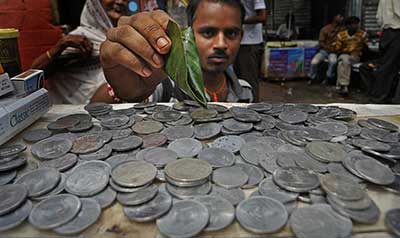Date: 15/11/2022
Relevance: GS-2: Indian Constitution - historical underpinnings, evolution, features, amendments, significant provisions and basic structure.
Key Phrases: Economically Weaker Sections (EWS), social and economic discrimination, Economic inequalities, ease of earning and living, ease of doing business, employment elasticity, Money as master.
Why in News?
- The Supreme Court of India’s decision to support the economically weaker sections (EWS) quota raises fundamental questions about remedies for social and economic discrimination.
Questions before the court:
- Reservations in jobs and education are legal remedies. Subsidies (and ‘freebies’) are material compensations for deprivations caused by social and economic discrimination. The Court has been approached on both matters.
- A fundamental question arising with an EWS quota on top of other quotas is that the total number of people discriminated against has crossed 50%, and now, a majority is complaining about discrimination.
- The question before the Court was whether opportunities can be reserved for economically weaker persons regardless of their societal status whereas the Constitution allows affirmative action only for historically disadvantaged castes and communities.
- When a majority demands affirmative action, courts are expected to judge whether to rob Peter to pay Paul.
There is a chasm:
- Distorted economy:
- The shape of the economy is distorted.
- Decent jobs and social security are available to too few.
- Good education and health care are not available to all.
- Social security to all:
- Until the pattern of economic growth changes to generate sufficient employment and the Government can deliver social security to all, issues about fair distribution of opportunities and the need for subsidies will become harder for the justice system and the Government to resolve.
- Economic inequalities:
- Economic inequalities have been increasing in all countries, even the rich ones.
- Governments are struggling to meet conflicting demands for “ease of doing business” for capital, and “ease of earning and living” for citizens.
- Modern inequality is said to be just because it is the result of a freely chosen process in which everyone enjoys equal access to the market and to property and automatically benefits from the wealth accumulated by the wealthiest individuals, who are also the most enterprising, deserving, and useful.
- Nearly everywhere a gaping chasm divides official meritocratic discourse from the reality of access to education and wealth for society’s least favoured class.
- Rise of Populism:
- On the left, populism has a “socialist” voice: it demands rights for all workers, across races and religions, who are unable to earn enough and have little social security.
- On the right, populism wants to protect racial and religious majorities from immigrants and minorities competing with them for limited economic opportunities.
Money as master:
- The money-owning class was despised in many cultures as mere money lenders sucking value out of others’ work. The financing of wars gave this class power over governments.
- International trade, the driving force for the economic power of European nations (supported by armed forces), provided another avenue for the growth of the financial class.
- After the U.S. Civil War, Abraham Lincoln dreamed of a future where “Money will cease to be the master and become the servant of humanity and democracy will rise superior to the money power”.
- Lincoln’s dream was buried in the latter half of the 20th century. With the victory of monetarism (and Friedman) over welfarism (and Keynes), money became the master.
- Central banks with the responsibility to look after the health of money acquired independence from elected governments whose responsibility is the health of citizens.
Changing the rules of the game:
- Changing role of financial institutions:
- The role of banks and financial institutions was to provide lubrication to the wheels of the real economy, rather than making large profits themselves.
- By the 21st century, production of the lubricant seems to have become the purpose of financial institutions.
- Innovative ways of making money from money also became the fastest way to increase personal wealth.
- Inequalities have increased because a much larger share of wealth is sucked into the financial sector.
- Rules set by the wealthy class:
- The rules of the economic game are now set by the wealthiest. They influence governments’ policies the most.
- The terms of trade between money and labour are set in their favour.
- They can determine the wages they will pay workers and prices for small enterprises.
- Common citizens who earn with their personal labour, as gig workers, small farmers, informal entrepreneurs, etc., live precariously.
- Formal jobs in large enterprises, where workers could unite to demand fair treatment from employers, are becoming fewer with the changing shape of the modern, post-industrial, economy.
- Indian scenario:
- India has the largest number of working-age persons in the world seeking work and better incomes.
- The Indian economy also has among the lowest employment elasticities (that is the number of jobs created with each unit of GDP growth).
- India is becoming one of the most unequal societies in the world — socially and economically.
- The country’s problem of dividing the economic pie to rectify both historical social and new economic discrimination cannot be resolved merely by judging whose needs are greater.
Conclusion:
- The shape of the economic pie must change so that the majority benefits much faster than a tiny minority on top. This will require reforms of institutions and economic ideology.
- The Government must listen and respond to the needs of common citizens more than to big business lobbies.
- Ease of living for the majority must drive government policies more than policies for attracting big investments with ease of doing business.
Source: The Hindu
Mains Question:
Q. What factors contribute to India's high level of inequality, and what steps can the government take to alter the composition of the economic pie? Discuss.







